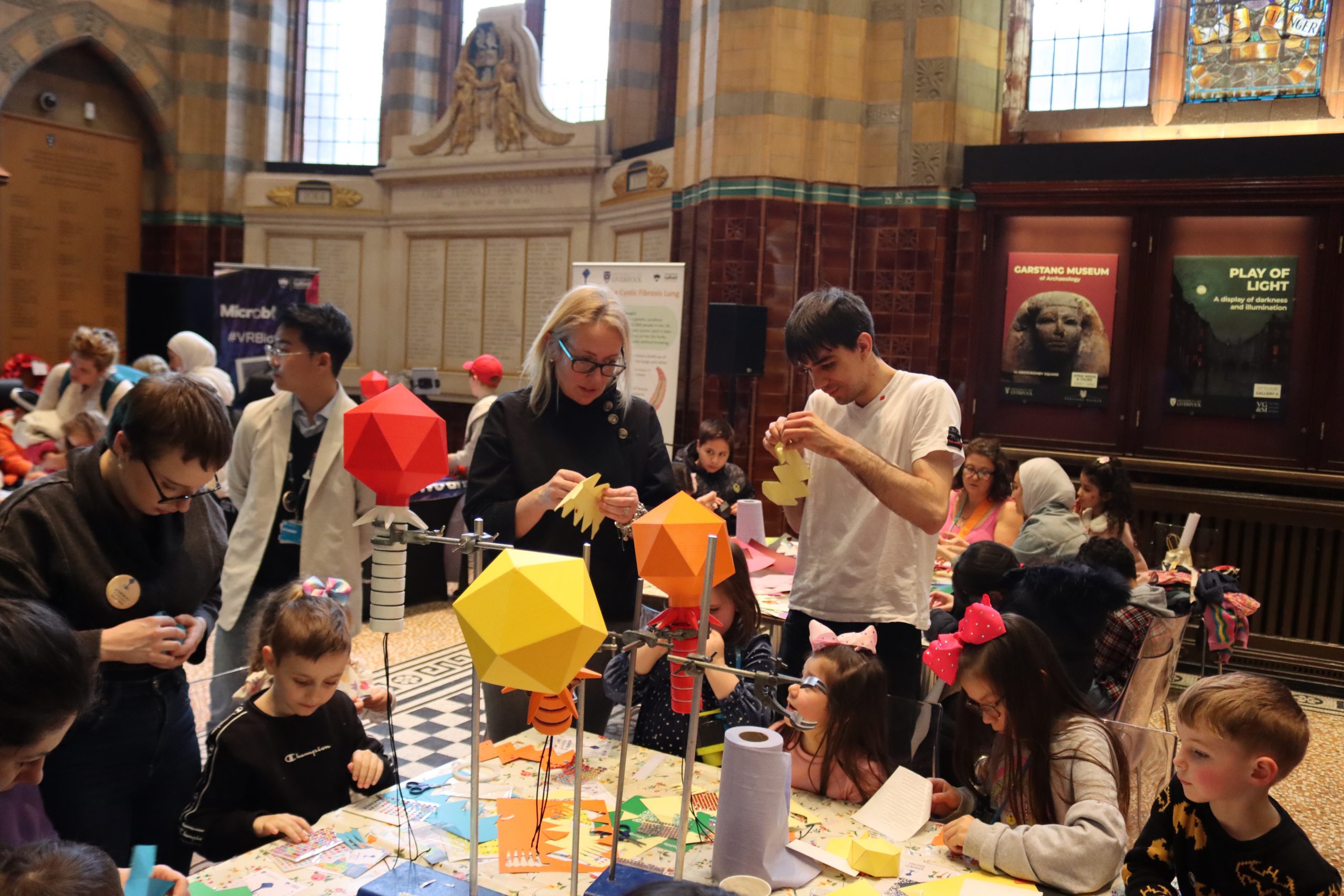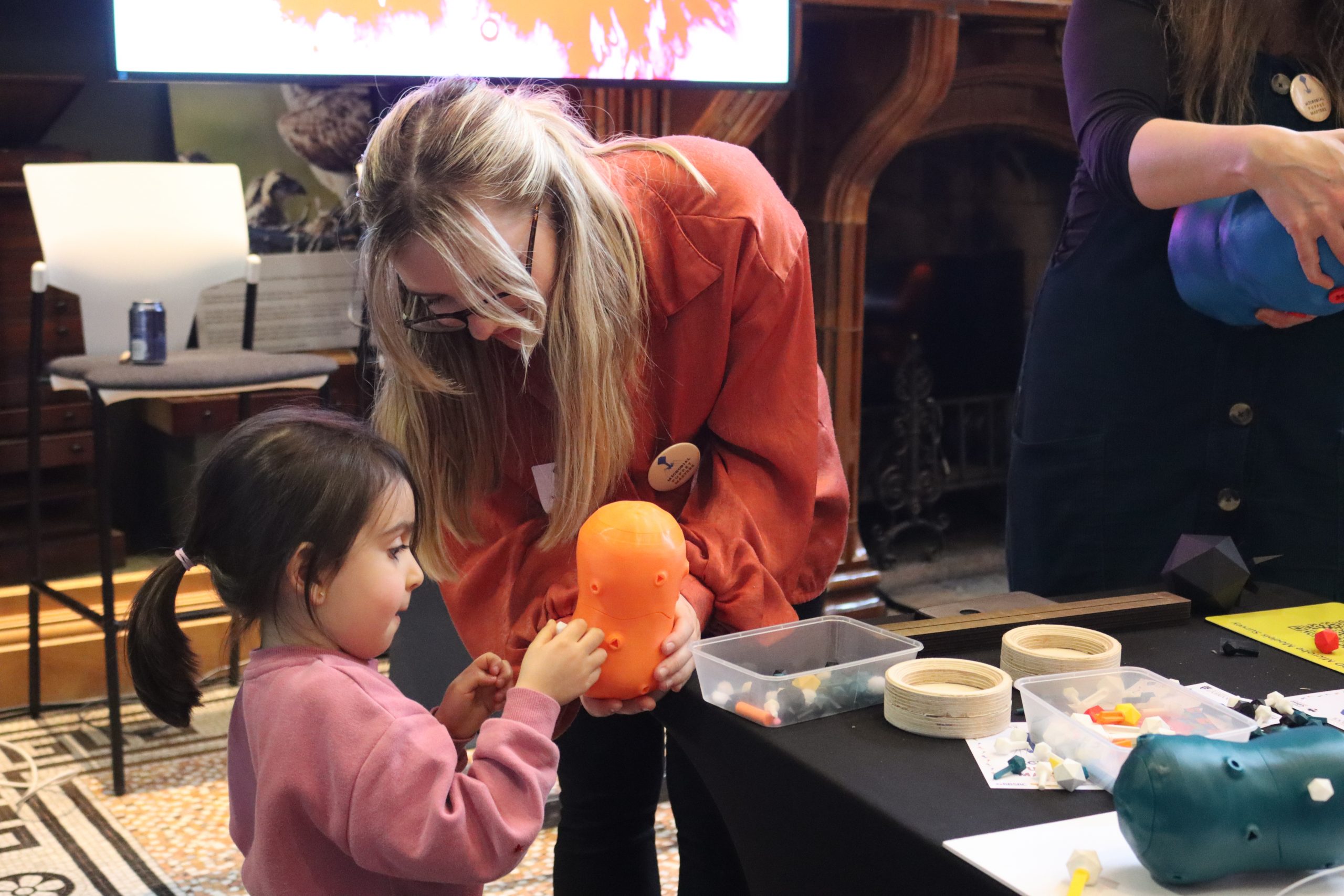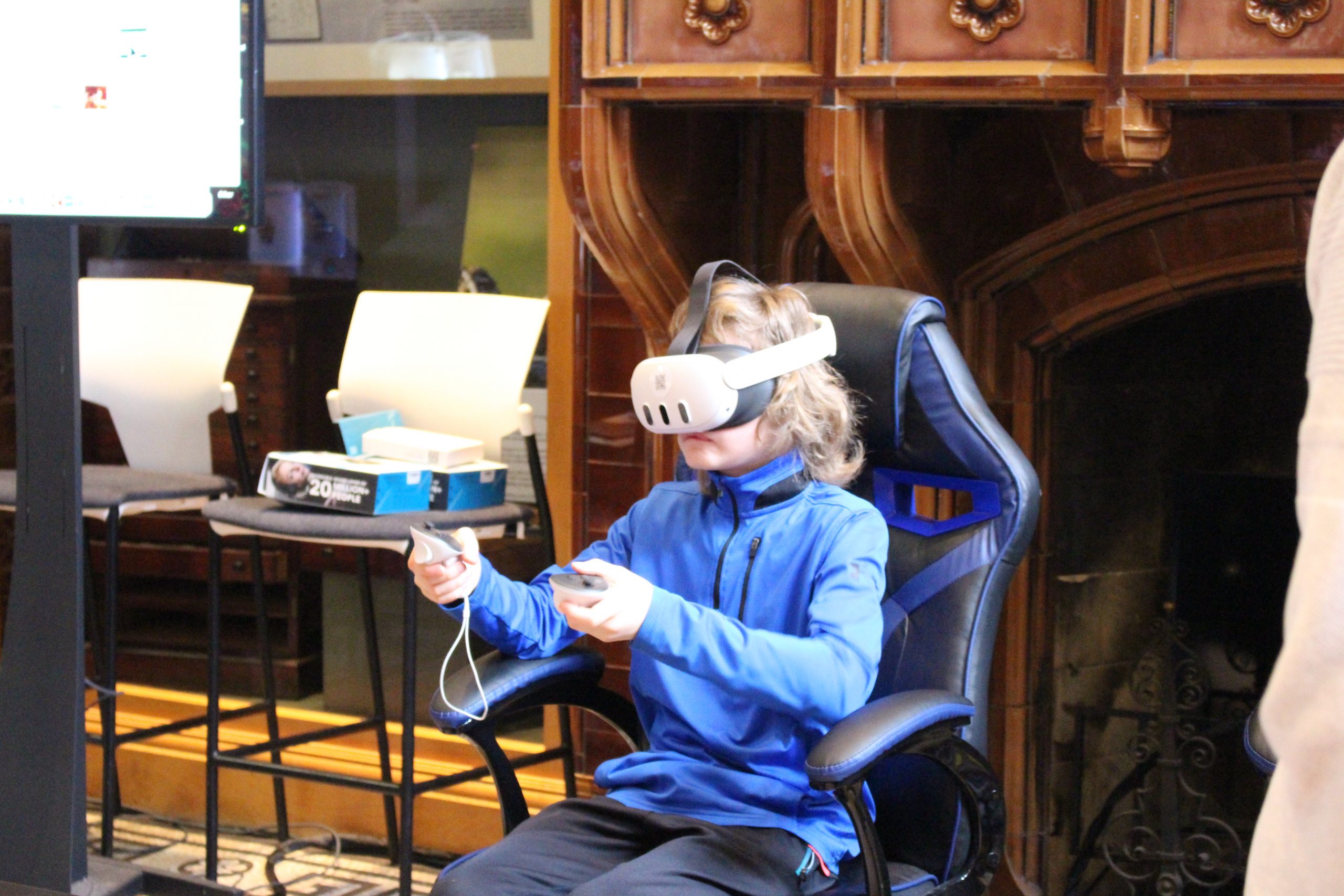by Maisie Czernuszka
Last month, the Liverpool Victoria Gallery and Museum opened its doors to an extraordinary celebration of science and discovery.

In collaboration with the University of Salford and the University of Liverpool, the Microbial puppet master’s team have delivered another exciting exhibition on the fascinating world of bacteria and bacteriophages.
Bacteriophages, or phages for short, are natural bacterial viruses and are the most abundant organisms on Earth. With an astonishing number of phages in the environment, these critters are vital for regulating bacterial populations, shaping microbial communities, and even hold potential for innovative approaches in medicine, agriculture, and biotechnology.
Throughout their evolutionary history, phages have engaged in an ongoing arms race with their bacterial hosts, constantly evolving new strategies to survive and thrive. While some phages are harnessed for their potential as novel anti-bacterials through phage therapy, others form partnerships with the bacteria they infect allowing them to grow stronger.
This British Science Week, a diverse team from the two universities made up of students, researchers, professors, and volunteers helped teach families about various aspects of bacteria and phages, aiming to bridge the gap between scientific research and public knowledge.

Using a variety of 3D-printed microbial models designed by George Dodgson from the Morsen Makerspace, visitors could test out the “lock and key” interaction between bacteria and phages. With the aim of finding the correct phage tail to successfully interact with the correct bacterial surface molecule, the bacteria become “infected” resulting in various visual changes to the bacterial model’s post-infection.
Families also got to embark on an immersive journey into the unseen wonders of a cystic fibrosis lung using virtual reality headsets. In collaboration with artist Paul Miller and Richard England from Reflex Arc, these models aim to demonstrate the potential of phages to help tackle bacterial infections in chronic conditions – a key research topic at the University of Salford and the University of Liverpool.

Visitors were also invited to unleash their creativity by crafting and decorating cardboard models of phages to take home, offering a hands-on opportunity to learn about the intricate 3D structures of these fascinating organisms. Moreover, young attendees had the chance to express their enthusiasm with temporary tattoos of fun phage and bacteria designs.
Through this range of creative and visual activities, families had the chance to dive headfirst into the fascinating world of microbial research, with over 450 visitors coming to the exhibition. The Microbial Puppet Masters team led by Prof. Chloe James and Prof. Heather E. Allison have been constantly innovating new ways to captivate the public and educate them about the wonders of phages.
In light of the recent COVID-19 pandemic, these efforts have become even more vital. The word “virus” often evokes fear and uncertainty, but amidst this global crisis, it’s essential to shift perceptions. While novel viruses understandably instill concern, it’s important to remember that our bodies are home to an astonishing 380 trillion viruses, many of which coexist peacefully with us.
As interest in phages as a medical therapeutic continues to soar, with the UK government recently launching an inquiry into the antibacterial potential of bacteriophages, the need for effective public engagement has never been greater.
